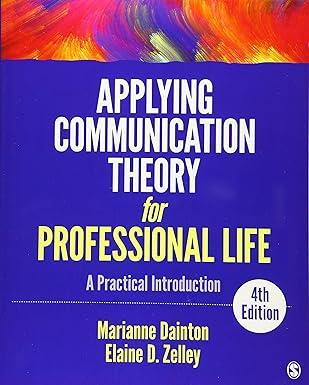Question
To be a professional social worker means embodying the knowledge and standards of the profession. The NASW Code of Ethics is considered one of the
To be a professional social worker means embodying the knowledge and standards of the profession. The NASW Code of Ethics is considered one of the bedrocks on which our profession is based and serves as a guiding document for the everyday practice of social workers. Explore the Code of Ethics and discuss how it is relevant to you and to your field placement.
Review the NASW Code of Ethics.
Imagine how you would discuss the role of a social worker with friends or family.
Think ahead to your field experience and the types of scenarios you may encounter then.
Describe the primary mission of the social work profession. For your response, imagine you are describing this to a friend or family member.
Define what constitutes an ethical dilemma.
Give an example of an ethical dilemma you might encounter in your field experience This could involve primary actions, the actions of a supervisor, or an agency policy.
Identify the Code of Ethics that applies to the ethical dilemma you described.
Describe what you would do to address the situation. specific in identifying your dilemma and in identifying what part of the Code of Ethics applies.
Please include references.
Step by Step Solution
There are 3 Steps involved in it
Step: 1

Get Instant Access with AI-Powered Solutions
See step-by-step solutions with expert insights and AI powered tools for academic success
Step: 2

Step: 3

Ace Your Homework with AI
Get the answers you need in no time with our AI-driven, step-by-step assistance
Get Started


